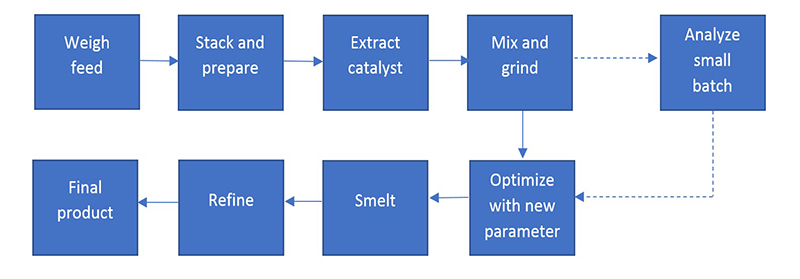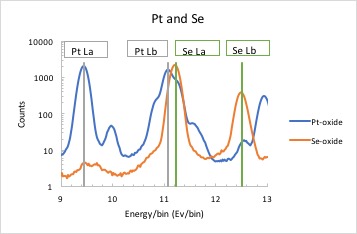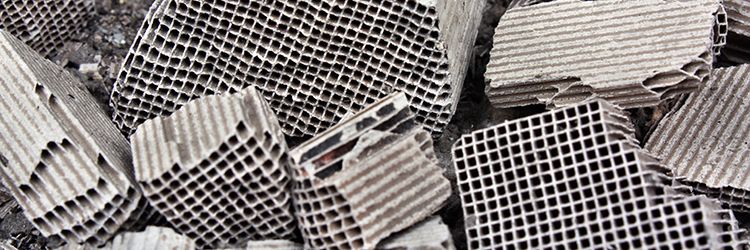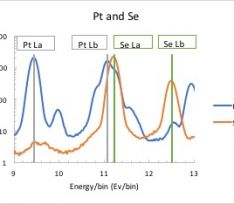Catalytic converts contain rare and valuable metals, including platinum (Pt), palladium (Pd), and rhodium (Rh). Recycling these platinum group metals (PGMs) is important since their supply is limited, but recyclers need a tool that helps them accurately measure the proportion of each. Vanta™ handheld XRF analyzers are just the tool for the job since they provide accurate material chemistry for a range of materials, including PGMs. On-the-spot measurement enables fast sorting to measure PGM concentrations in these lucrative recycled assets.
Olympus Application Scientist Karen Paklin attended the International Precious Metals Institute (IPMI) annual conference in San Antonio, Texas in June 2018. She presented a study on the analysis of platinum group metals in catalytic converters with handheld X-ray fluorescence.
Abstract
Handheld X-ray fluorescence (HHXRF) analyzers can quickly and accurately display concentrations of platinum group metal (PGM) additives, such as platinum (Pt), palladium (Pd), and rhodium (Rh), contained within catalytic converters. These catalytic converters are coated with an aluminum oxide layer (also referred to as a washcoat) along with PGM additives and other elements during their manufacture. Converters containing the washcoat substrate, known as cordierite, compose about 95% of the market.
Recent advancements in HHXRF have shown that properly accounting for the
Highlights
Pt, Pd, and Rh are mostly recycled from catalytic converters, as shown in the process below. Once the powder within the catalytic converters is ground and homogenous, it is sent to be analyzed for elemental composition. Those values are then used to perfect the process to obtain the highest recovery rate of PGMs from the input feed.

HHXRF analyzers are optimized with an element suite to account for all possible matrix effects and/or elemental overlaps. For example, selenium and tantalum are used interchangeably to falsely increase platinum values. This is done with the foreknowledge that XRF concentration values could be tricked by the overlapping characteristic energies of the elements. However, there are algorithms in place to distinguish one from the other to recognize this kind of trickery. |  |
HHXRF showed improved accuracy and precision for Pt, Pd, and Rh. The results below are for platinum. To see the rest, download the paper at the link below.
 |
Download the Entire Paper
Related Content
Automotive Catalytic Converter Recycling
Vanta for Car Catalyst Analysis Infographic
Get In Touch

